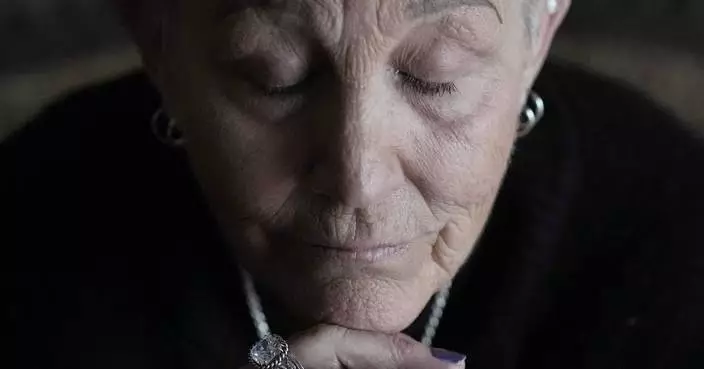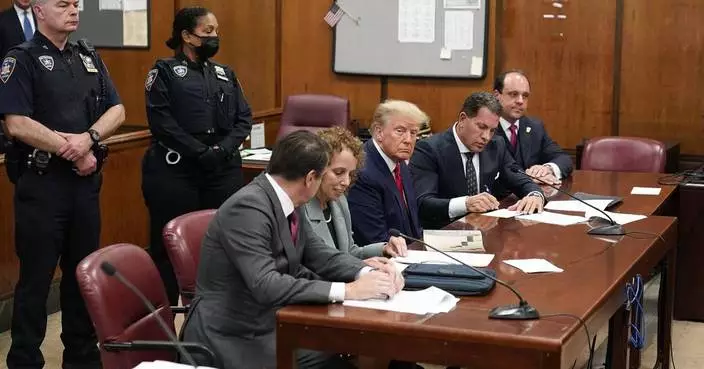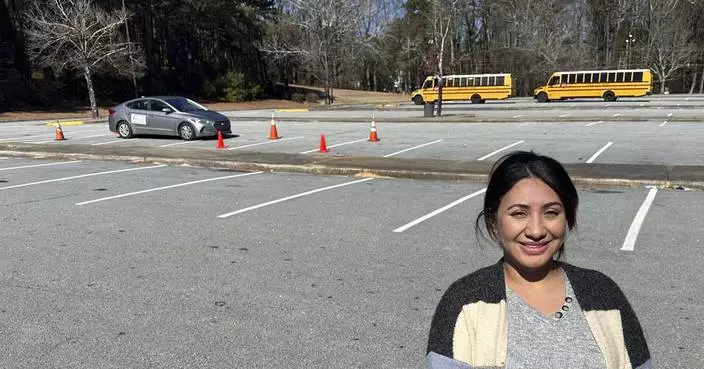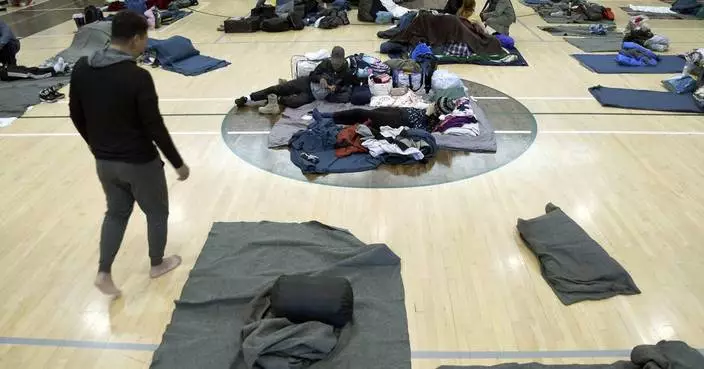The Supreme Court is allowing the Trump administration to maintain its restrictive policy on refugees.
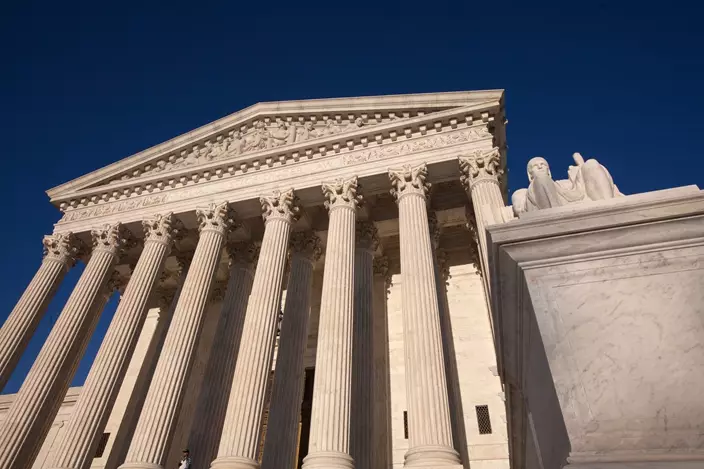
FILE- This April 4, 2017, file photo, shows the Supreme Court Building is seen in Washington. The Supreme Court is allowing the Trump administration to maintain its restrictive policy on refugees. (AP Photo/J. Scott Applewhite, File)
The justices on Tuesday agreed to an administration request to block a lower court ruling that would have eased the refugee ban and allowed up to 24,000 refugees to enter the country before the end of October.
The order was not the court's last word on the travel policy that President Donald Trump first rolled out in January. The justices are scheduled to hear arguments on Oct. 10 on the legality of the bans on travelers from six mostly Muslim countries and refugees anywhere in the world.
It's unclear, though, what will be left for the court to decide. The 90-day travel ban lapses in late September and the 120-day refugee ban will expire a month later.
White House spokeswoman Sarah Huckabee Sanders said Tuesday night: "We are pleased that the Supreme Court has allowed key components of the order to remain in effect. We will continue to vigorously defend the order leading up to next month's oral argument in the Supreme Court."
The administration has yet to say whether it will seek to renew the bans, make them permanent or expand the travel ban to other countries.
Lower courts have ruled that the bans violate the Constitution and federal immigration law. The high court has agreed to review those rulings. Its intervention so far has been to evaluate what parts of the policy can take effect in the meantime.
The justices said in June that the administration could not enforce the bans against people who have a "bona fide" relationship with people or entities in the United States. The justices declined to define the required relationships more precisely.
A panel of the San Francisco-based 9th U.S. Circuit Court of Appeals upheld a district judge's order that would have allowed refugees to enter the United States if a resettlement agency in the U.S. had agreed to take them in.
The administration objected, saying the relationship between refugees and resettlement agencies shouldn't count. The high court's unsigned, one-sentence order agreed with the administration, at least for now.
The appeals court also upheld another part of the judge's ruling that applies to the ban on visitors from Iran, Libya, Somalia, Sudan, Syria and Yemen.
Grandparents and cousins of people already in the U.S. can't be excluded from the country under the travel ban, as the Trump administration had wanted. The administration did not ask the Supreme Court to block that part of the ruling.
LONDON (AP) — Britain’s plans to send some asylum-seekers to Rwanda were swiftly condemned by international humanitarian organizations after Parliament approved legislation allowing the deportation flights to begin later this year.
Both the U.N. refugee agency and the Council of Europe on Tuesday called for the U.K. to rethink its plans because of concerns that the legislation undermines human rights protections and fears that it will damage international cooperation on tackling the global migrant crisis.
“The new legislation marks a further step away from the U.K.’s long tradition of providing refuge to those in need, in breach of the Refugee Convention,” U.N. High Commissioner for Refugees Filippo Grandi said in a statement. “Protecting refugees requires all countries – not just those neighboring crisis zones – to uphold their obligations.”
The statement came just hours after Britain’s House of Lords dropped its attempts to amend the legislation, paving the way for it to become law. On Monday, Prime Minister Rishi Sunak said deportation flights to Rwanda would begin in 10-12 weeks.
Michael O’Flaherty, the Council of Europe’s commissioner for human rights, criticized the legislation for preventing asylum-seekers from asking the courts to intervene when they are they are threatened with being sent back to the countries they are fleeing.
“The adoption of the Safety of Rwanda (Asylum and Immigration) Bill by the U.K. Parliament raises major issues about the human rights of asylum seekers and the rule of law more generally,” O’Flaherty said in a statement. “The United Kingdom government should refrain from removing people under the Rwanda policy and reverse the bill’s effective infringement of judicial independence.”
The reaction came as French authorities reported that at least five people died Tuesday when a boat carrying about 100 or more migrants got into trouble while trying to cross the English Channel.
Sunak’s government says its deportation plans will help stop the tide of people entering Britain illegally because migrants won’t make the risky crossing in leaky inflatable boats if they know there is a chance they will be sent on one-way ticket to Rwanda.
Small boat crossings are a potent political issue in Britain, where they are seen as evidence of the government’s failure to control immigration.
Sunak has made his plan to “stop the boats” a key campaign promise with his Conservative Party trailing badly in opinion polls ahead of a general election later this year.
The number of migrants arriving in Britain on small boats soared to 45,774 in 2022 from just 299 four years earlier as people fleeing war, famine and economic hardship paid criminal gangs thousands of pounds to ferry them across the channel.
Small boat arrivals dropped to 29,437 last year as the government cracked down on people smugglers and reached an agreement to return Albanians to their home country.
Former Prime Minister Boris Johnson first proposed the Rwanda plan more than two years ago, when he reached an agreement with the East African nation to accept some asylum-seekers in return for millions of pounds (dollars) in aid. Implementation has been held up by a series of court challenges and opposition from migrant advocates who say it violates international law.
The deportees will be eligible to apply for asylum in Rwanda but they won’t be allowed to return to Britain.
The legislation approved early Tuesday, known as the Safety of Rwanda Bill, is a response to a U.K. Supreme Court decision that blocked deportation flights because the government couldn’t guarantee the safety of migrants sent to Rwanda. After signing a new treaty with Rwanda to beef up protections for migrants, the government proposed the new legislation declaring Rwanda to be a safe country.
The Rwandan government welcomed approval of the bill, saying it underscores the work it has done to make Rwanda “safe and secure” since the genocide that ravaged the country 30 years ago.
“We are committed to the migration and economic development partnership with the U.K. and look forward to welcoming those relocated to Rwanda,” government spokesperson Yolande Makolo said.
Associated Press writer Ignatius Ssuuna in Kigali, Rwanda contributed to this report.
Follow AP’s global migration coverage at: https://apnews.com/hub/migration
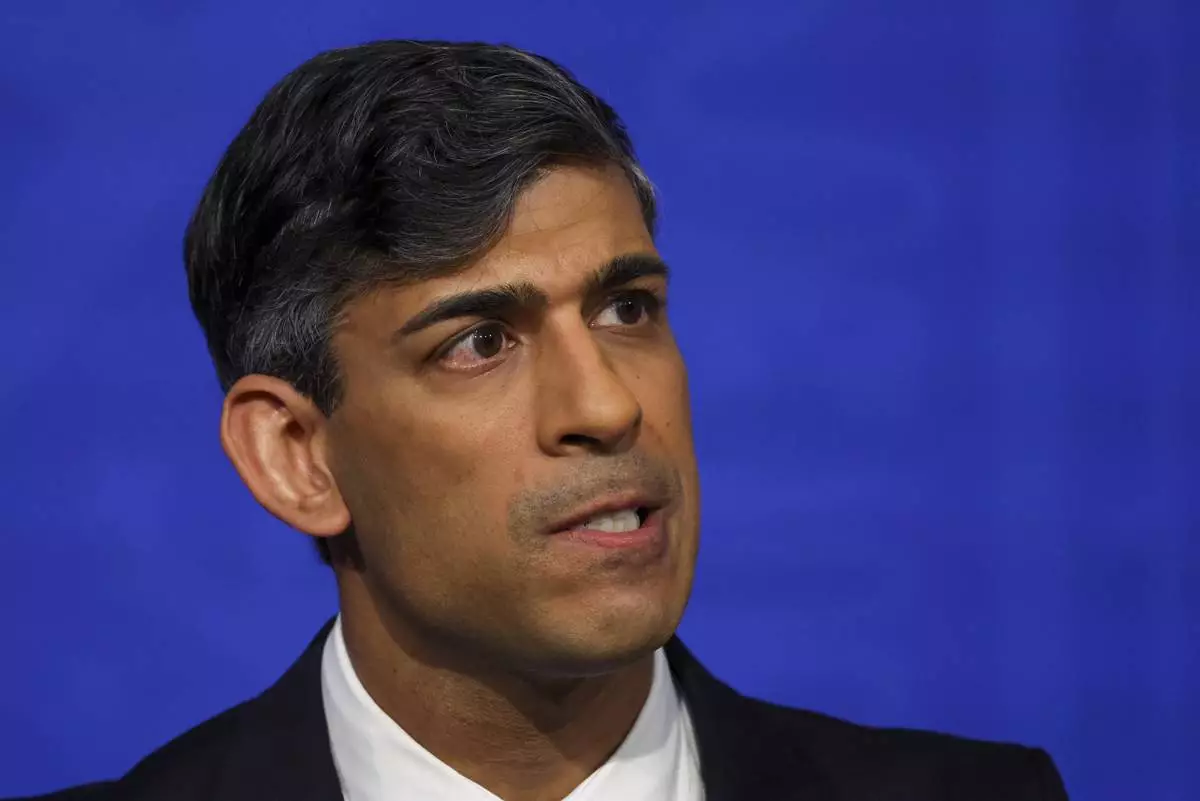
British Prime Minister Rishi Sunak attends a press conference at Downing Street, in London, Monday, April 22, 2024. Sunak pledged Monday that the country’s first deportation flights to Rwanda could leave in 10-12 weeks as he promised to end the Parliamentary deadlock over a key policy promise before an election expected later this year. (Toby Melville/Pool Photo via AP)






